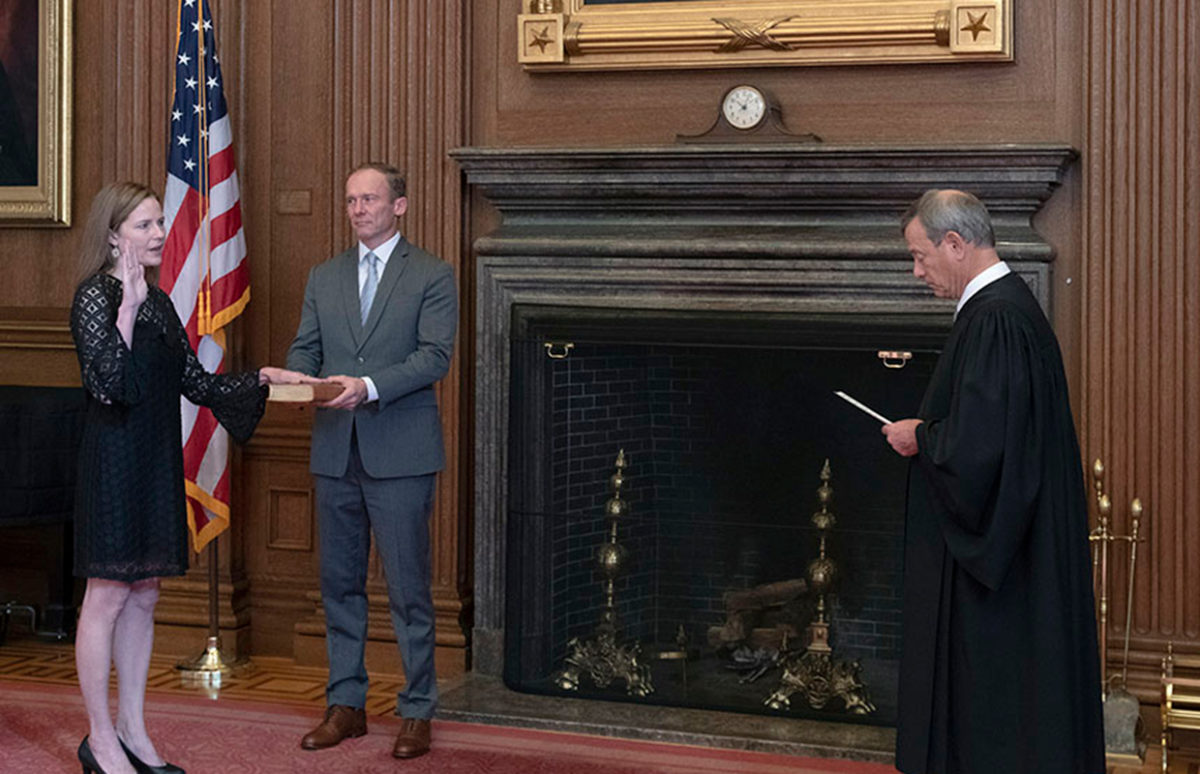Judge Amy Coney Barrett was confirmed as the Supreme Court replacement for Ruth Bader Ginsburg on 27 October, barely a week before the presidential election.
After Justice Ginsburg’s death on 18 September, the nomination of a new Justice became a political battle. Justice Ginsburg was one of the four Democratic-nominated Justices out of the nine in the current Court. If she was replaced by a right-leaning Republican pick, that would make for a six to three conservative majority in the Court, and would have repercussions for a generation as Justices are named for life. Democrats argued that no one should be nominated till after the election, just as Republicans had successfully argued when conservative Justice Antonin Scalia died seven months before the 2016 election. Supreme Court nominees have to be confirmed by the Senate. With a Republican majority in the upper house, its leader argued that the nomination should go ahead, and it did in record time: a month from nomination to confirmation, a process which normally takes 2-3 months.
The November 3 election may not only see a change of President, but also of Senate majority, as a third of Senate seats are up for election.
Amy Coney Barrett
Justice Barrett, 48, grew up in Louisiana and studied law at the Catholic University of Notre Dame in Indiana, before becoming a professor there. She spent four years as a clerk, or assistant, to a federal judge and to the late conservative Supreme Court Justice Antonin Scalia. She practiced as a lawyer for two years and has then spent most of her career as an academic. President Trump selected her as a federal appeals court judge in 2017.

Justice Barrett is a devout Catholic and mother of seven children, two adopted from Haiti. Conservatives are confident she will add to the conservative slant of the Supreme Court, opposing abortion, the Affordable Care Act and gun control.
At the Senate confirmation hearings, she agreed that she was, like her mentor Justice Scalia, what is known as an originalist and a textualist: “I interpret the Constitution as a law, that I interpret its text as text, and I understand it to have the meaning that it had at the time people ratified it,” she said.
 You can find more the Supreme Court and Amy Coney Barrett's nomination in Shine Bright AMC File 15 Justice for all?
You can find more the Supreme Court and Amy Coney Barrett's nomination in Shine Bright AMC File 15 Justice for all?
Copyright(s) :
Fred Schilling, Collection of the Supreme Court of the United States
Official White House Photo by Andrea Hanks
Tag(s) : "Amu Coney Barrett" "gender equality" "Ruth Bader Ginsburg" "Shine Bright AMC" "Supreme Court" "Trump" "U.S. culture" "U.S. elections"





